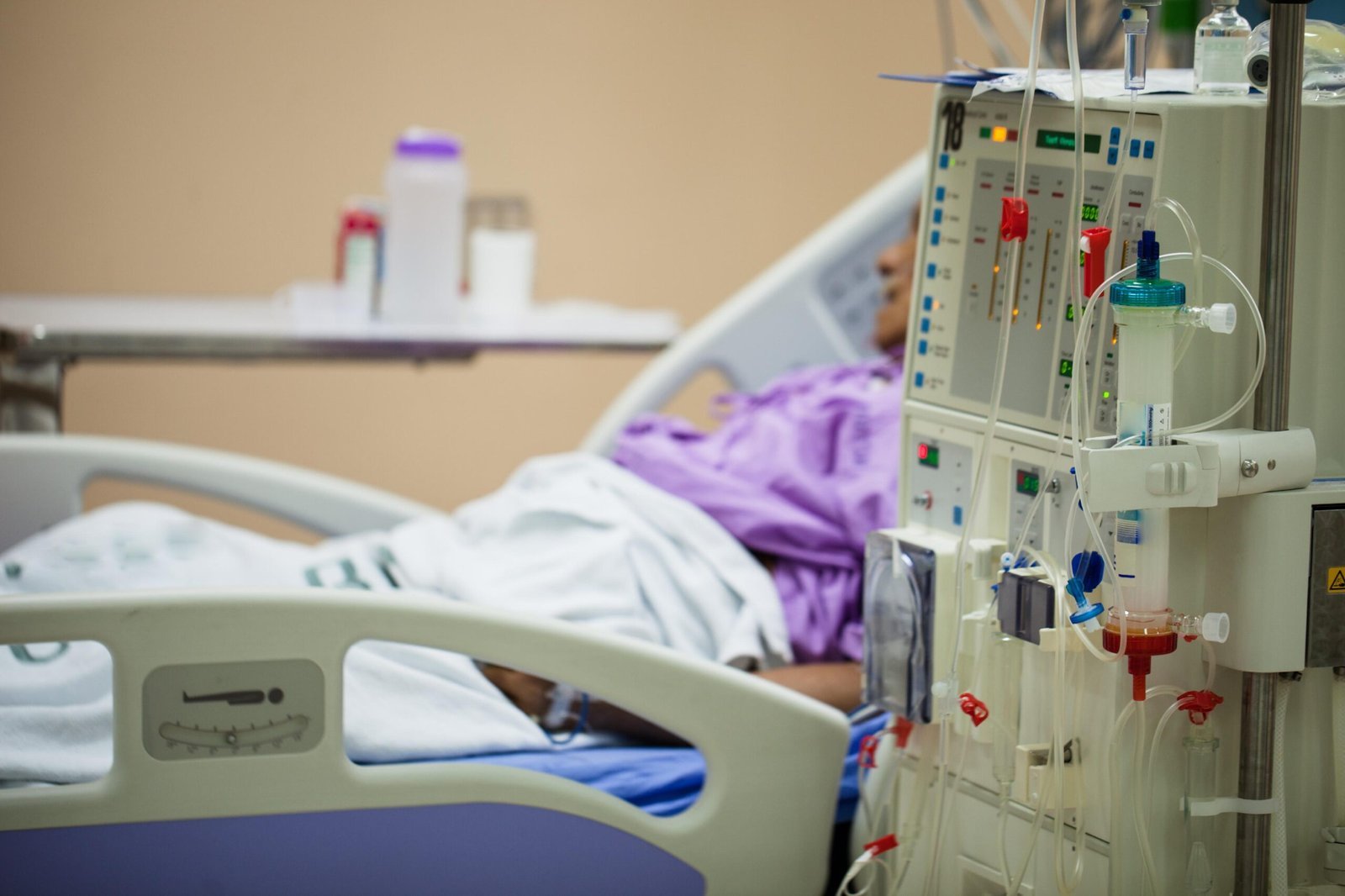
The Dialysis Center at Vihaan Hospital and Research Centre offers advanced and comprehensive care for patients requiring kidney dialysis. Equipped with the latest dialysis machines, the center provides both hemodialysis and peritoneal dialysis services. Staffed by a team of skilled nephrologists, nurses, and technicians, the center is dedicated to delivering high-quality, compassionate care. Each dialysis station is designed for patient comfort, featuring adjustable beds and personal entertainment systems. The center also emphasizes strict adherence to safety and hygiene protocols to minimize infection risks. Alongside dialysis treatment, the center offers patient education, dietary consultation, and psychological support, ensuring holistic care for individuals with chronic kidney disease.
Dialysis F&Q's
Dialysis is a medical treatment that serves as an artificial replacement for lost kidney function due to renal failure. It is used to remove excess water, solutes, and toxins from the blood in individuals whose kidneys can no longer perform these functions naturally. This is critical for individuals with advanced chronic kidney disease or acute kidney injury.
The two main types of dialysis are hemodialysis and peritoneal dialysis. Hemodialysis involves circulating the patient’s blood outside of the body through an external filter, called a dialyzer, that removes waste products. The cleaned blood is then returned to the body. Peritoneal dialysis uses the patient’s peritoneum in the abdomen as a membrane across which fluids and dissolved substances are exchanged from the blood.
Patients typically need to undergo hemodialysis three times a week, with each session lasting around 4 hours. However, the exact frequency and duration can vary based on the individual’s residual kidney function, the efficiency of the dialysis machine, and the patient’s size and medical condition.
Yes, patients can perform dialysis at home. Home dialysis can be in the form of peritoneal dialysis, which is commonly done at home, or home hemodialysis. Training is provided to ensure that patients and their caregivers can manage the process safely and effectively. Home dialysis offers more flexibility in scheduling and can be tailored to fit the patient’s lifestyle, potentially improving quality of life.
Potential risks or complications of dialysis include infections, particularly at the site of the catheter used for treatment; low blood pressure during hemodialysis sessions; cramping; itching; high blood potassium or sodium levels; and peritonitis (infection of the peritoneal cavity) in peritoneal dialysis. Long-term dialysis can also lead to amyloidosis, a condition where proteins accumulate in the body’s organs and tissues.
Dialysis can have a significant impact on a patient’s lifestyle, requiring adjustments to accommodate treatment schedules, dietary restrictions, and fluid intake limitations. Hemodialysis patients may spend a considerable amount of time in a clinic, affecting their work, education, and social activities. Peritoneal dialysis offers more flexibility but still demands daily attention to treatment. Patients may also experience fatigue, making it challenging to maintain their usual level of activity. Emotional and psychological support is crucial to help patients and their families adapt to the changes.








